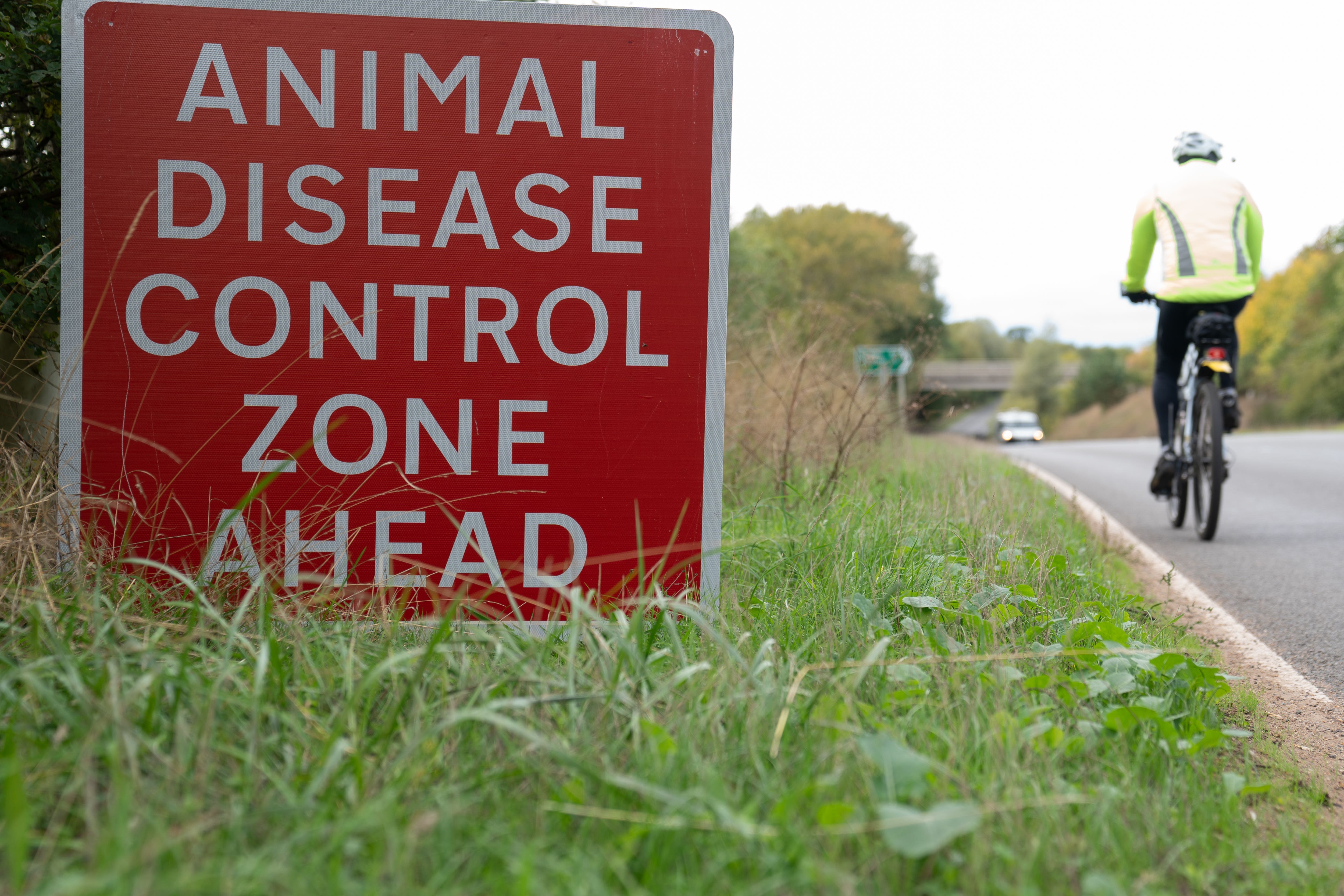Bird flu ‘prevention zone’ declared across Britain as cases rise
The UK is battling its largest ever outbreak of the disease.

Your support helps us to tell the story
From reproductive rights to climate change to Big Tech, The Independent is on the ground when the story is developing. Whether it's investigating the financials of Elon Musk's pro-Trump PAC or producing our latest documentary, 'The A Word', which shines a light on the American women fighting for reproductive rights, we know how important it is to parse out the facts from the messaging.
At such a critical moment in US history, we need reporters on the ground. Your donation allows us to keep sending journalists to speak to both sides of the story.
The Independent is trusted by Americans across the entire political spectrum. And unlike many other quality news outlets, we choose not to lock Americans out of our reporting and analysis with paywalls. We believe quality journalism should be available to everyone, paid for by those who can afford it.
Your support makes all the difference.An avian flu “prevention zone” has been declared across Great Britain in the face of rising case numbers as the country battles the largest ever outbreak of the disease.
From midday on Monday, it will be a legal requirement for all bird keepers in Britain to follow strict measures to protect flocks from bird flu, including keeping free range birds in fenced areas and stringent biosecurity for staff on farms.
The move by the chief veterinary officers of England, Wales and Scotland comes following an increase in the number of cases of avian flu being detected in wild birds and commercial premises in recent weeks.
The UK has faced its largest ever outbreak of the disease in the past year, with 190 cases confirmed across the country since late October 2021 – 30 of which were confirmed since the beginning of this month.
In the East of England, which has been particularly badly hit, mandatory housing measures for all poultry and captive birds in Norfolk, Suffolk and parts of Essex were introduced earlier in October.
The disease has also ripped through breeding colonies of seabirds, killing thousands in some sites and affecting threatened species from puffins to hen harriers.
Officials say that the avian flu circulates in wild birds and when they migrate to the UK from mainland Europe over the winter, they can spread the disease to poultry and other captive birds.
Under the prevention zone rules, producers with more than 500 birds must restrict access for non-essential people on their sites, staff must change clothing and footwear before entering enclosures and vehicles will need regular cleaning and disinfecting.
Backyard owners of smaller numbers of chickens, ducks and geese must also take steps to limit the risk of the disease spreading to their flocks, they are being warned.
In a joint statement, the chief veterinary officers for England, Scotland and Wales said: “Bird keepers have faced the largest ever outbreak of avian flu this year and with winter brings an even more increased risk to flocks as migratory birds return to the United Kingdom.
“Scrupulous biosecurity and hygiene measures is the best form of defence, which is why we have declared an avian influenza prevention zone (AIPZ) across Great Britain, meaning that all bird keepers must take action to help prevent the disease spreading to more poultry and other domestic birds.
“The introduction of an AIPZ means regardless of whether you keep a few birds or thousands, you are legally required to meet enhanced biosecurity requirements to protect your birds from this highly infectious disease.”
The prevention zone in force across Great Britain does not include a nationwide requirement to keep birds inside, but officials said that was being kept under constant review.
They also said the risk to public health from the virus was very low and properly cooked poultry and eggs are safe to eat.